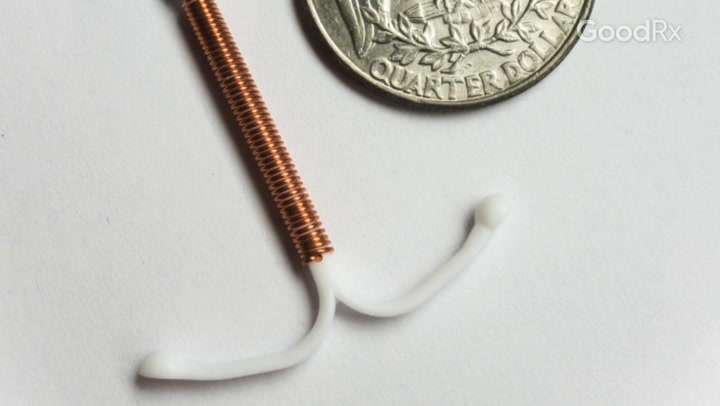
What Is Dissociation During Sex — and How Can You Cope With It?
Key takeaways:
Dissociation is a term for feeling disconnected from your thoughts, emotions, sensations, sense of self, or your surroundings.
Dissociation during sex isn’t unusual and may be caused by anything from everyday stress to fear of intimacy, insecurity, or trauma.
Mindfulness and meditation can be a helpful way to manage dissociation during sex, and you may want to seek out professional help.
Table of contents

If you sometimes find that your mind wanders or you feel disconnected from your body, you’re not alone. This is often called dissociation, and it can happen while you’re having sex. You might experience dissociation during sex for a variety of reasons, from stress and anxiety to untreated trauma.
There are ways you can cope with dissociation to have a fulfilling sex life. Here, we’ll cover what dissociation feels like, why it might happen in the first place, and what you can do to prevent dissociation during sex.
What is dissociation?
Dissociation is a term that refers to a sense of detachment or disconnection from your experience or surroundings. There are lots of ways you can dissociate.
You might feel disconnected from your body or from your thoughts and feelings. You can also feel disconnected from the world around you. Other forms of dissociation include:
Experiencing a mental fog
Having a gap in your memory
Having difficulty paying attention
Dissociation exists on a spectrum. Many people experience mild forms of dissociation such as daydreaming, fantasizing, or feeling very distracted. You might have also heard the terms depersonalization and derealization, which are more serious forms of dissociation:
Depersonalization is a sense of detachment from your identity.
Derealization is when the world or people around you seem unreal.
Read more like this
Explore these related articles, suggested for readers like you.
What happens when you dissociate during sex?
It’s not uncommon to dissociate or feel disconnected during sex. But it can prevent you from experiencing pleasure and emotional connection. Here’s how dissociation can affect your experience of sex:
You might have a hard time feeling physical sensations, including pleasure or pain.
Your thoughts might wander, or you may think about other things during sex.
You might lose a sense of awareness of your partner or your surroundings.
Your body or your surroundings might feel “strange” or “unreal.”
You might feel like you’re watching yourself from the outside, or like you’re in a movie.
You might feel like everything is “foggy” or far away.
You might stare into space, or feel like your mind has gone blank.
You might not remember everything that you and your partner do.
You feel “frozen” or like you can’t move.
Dissociation can also affect your ability to connect with your partner, especially if you start to have negative associations with sex.
What are some common causes for dissociating during sex?
There are many potential reasons you may dissociate during sex. These can include:
Past trauma: Dissociation during sex can be caused by untreated childhood sexual trauma, abuse, or adult sexual assault. It’s extremely common, especially in women.
Anxiety: Anxiety can also cause dissociation, especially performance anxiety for men. It can also lead to body image issues for all genders and feelings of insecurity or inadequacy around sex.
Stress: Many people carry so much stress during the day that they’re unable to switch off their minds during sex. If this happens, you may dissociate despite being physically aroused. Stress can also affect your ability to become aroused or stay aroused during sex.
Lack of intimacy: Emotional disconnection or lack of closeness with your partner may lead to dissociation.
Fear of intimacy: If you’ve had traumatic relationships in the past, intimacy and vulnerability may feel extremely unsafe. Dissociation and mentally checking out during sex may be a way to escape those unsafe feelings.
How to manage dissociation during sex
Finding ways to manage dissociation during sex often depends on why you’re disconnecting in the first place.
For sexual trauma survivors, dissociation can be a way to cope with reminders of past trauma that may pop up during sex. Dissociation can be a form of protection from feeling traumatized all over again.
If you’ve survived childhood sexual abuse, other abuse as a child, or assault as an adult, it’s usually best to seek out therapy from a qualified mental healthcare professional. Body-mind therapy (also called somatic therapy) or a therapy to help you process trauma such as EMDR therapy may be especially helpful. In some cases working with a sex therapist can be a good choice, too.
If the dissociation you’re experiencing is not related to past trauma, the following ideas may be helpful to try on your own:
Mindfulness and meditation can help reduce your anxiety or insecurity about sex. It can also help you recognize when you’re dissociating during sex. If you notice your mind beginning to wander, for example, you can use mindfulness to bring your thoughts back to the present moment.
Try grounding techniques that help you take your time to get settled before you have sex. Focus on your senses to notice what you can see, hear, smell, or touch around you or on your body.
Avoiding alcohol and other drugs that may affect your ability to fully participate during sex can increase your attention and focus.
You can learn more about dissociation during sex and how to cope with it in the following books:
“Better Sex Through Mindfulness” by Lori Brotto
“Come as You Are: The Surprising New Science That Will Transform Your Sex Life” by Emily Nagoski
“With Pleasure: Managing Trauma Triggers for More Vibrant Sex and Relationships” by August McLaughlin and Jamila Dawson
“The Sexual Healing Journey: A Guide for Survivors of Sexual Abuse” by Wendy Maltz
“A Woman’s Guide to Overcoming Sexual Fear and Pain” by Aurelie Goodwin and Marc Agronin
How to help someone who is dissociating during sex
It’s not easy to help someone who may be dissociating during sex. Dissociation can be a sensitive subject. And depending on the situation, it may not be a subject to bring up with your partner at all.
If you’re having casual or hookup sex, it may not be appropriate to talk about dissociation. But you can still communicate ground rules to make sex safer and more enjoyable for both of you. For example, talk about how you want to check in with each other during sex. Determine if you want to use a safe word to stop at any point.
If you are in a trusting relationship and you notice your partner dissociating during sex, stop immediately. They may be feeling retraumatized by past experiences or checked out and unable to fully participate in your time together.
Check in with your partner by asking how they’re doing and feeling. Ask if they need help refocusing and getting more connected with the activity at hand. If your partner has a history of trauma, ask questions to help them recognize where they are.
Depending on your partner’s level of dissociation, you may need to table sex until another time. You can also check in with your partner later to ask about their experience with dissociation. This conversation may be a great time to ask how you can help in the future.
If your partner is dissociating because of past sexual abuse, try to seek out professional help. If you’re seeing a couples or sex therapist together, they can advise you on how to support your partner if they dissociate during sex.
The bottom line
Dissociation is when you feel detached or disconnected from your body, feelings, thoughts, or surroundings. Dissociating while you’re having sex is more common than you might think. It can happen for many reasons, including anxiety, substance use, or past sexual trauma. Using mindfulness or grounding techniques before and during sex can help you stay present while you’re having sex. If dissociation happens often or gets in the way of your sex life, it might be time to reach out to a mental healthcare professional to get help.
Why trust our experts?



References
APA Dictionary of Psychology. (2018). Depersonalization. American Psychological Association.
APA Dictionary of Psychology. (2018). Derealization. American Psychological Association.
Bird, E. R., et al. (2014). Dissociation during sex and sexual arousal in women with and without a history of childhood sexual abuse. Archives of Sexual Behavior.
Draucker, C. B., et al. (2011). Healing from childhood sexual abuse: A theoretical model. Journal of Child Sexual Abuse.
National Center for PTSD. (2023). Dissociative symptoms scale (DSS).
van de Kamp, M. M., et al. (2019). Body- and movement-oriented interventions for posttraumatic stress disorder: A systematic review and meta-analysis. Journal of Traumatic Stress.





























